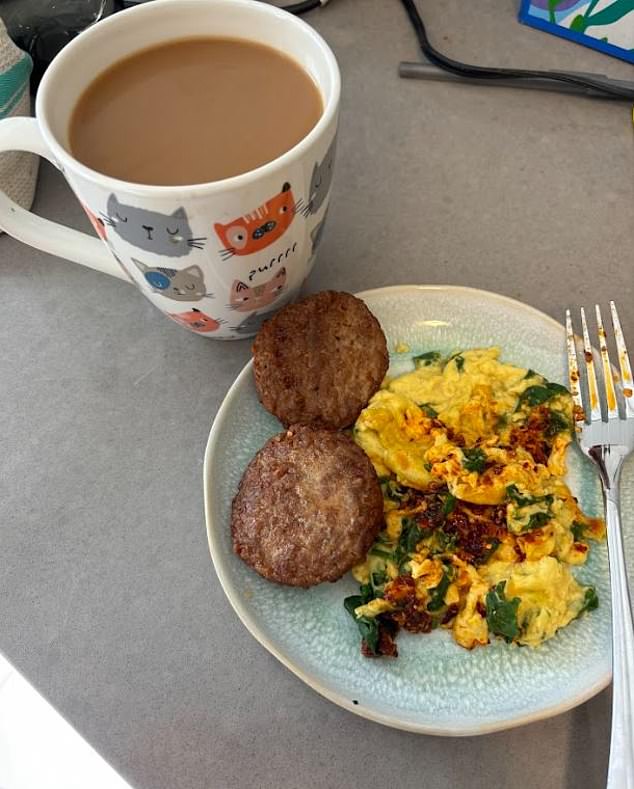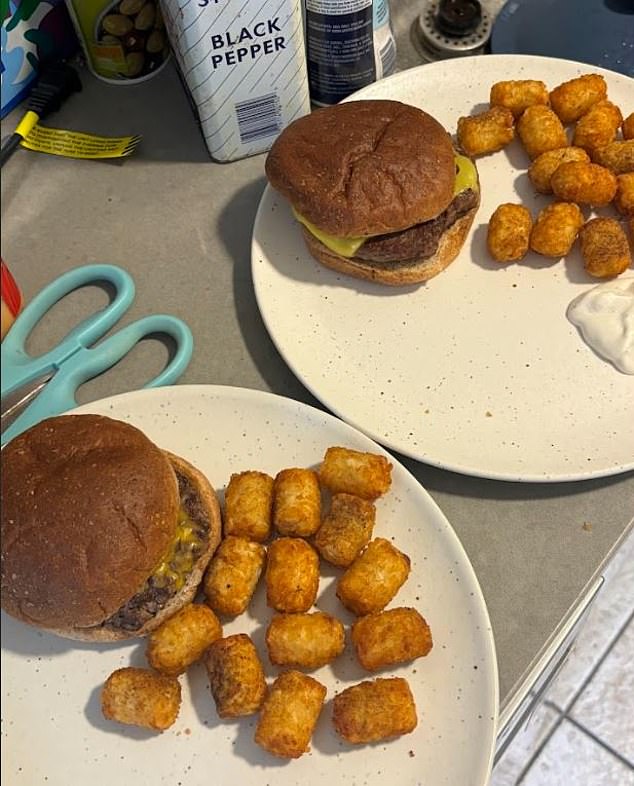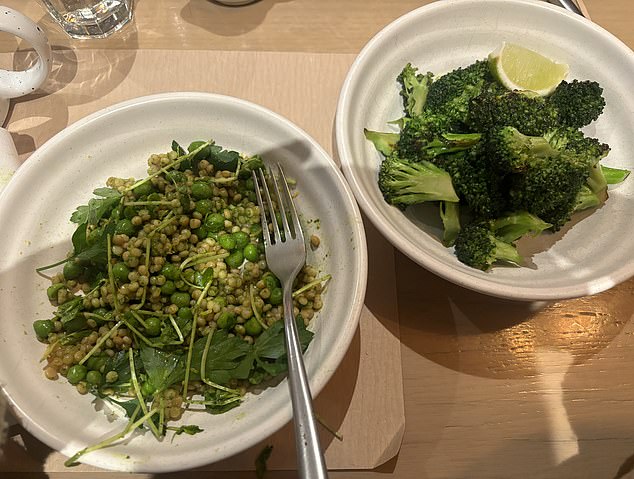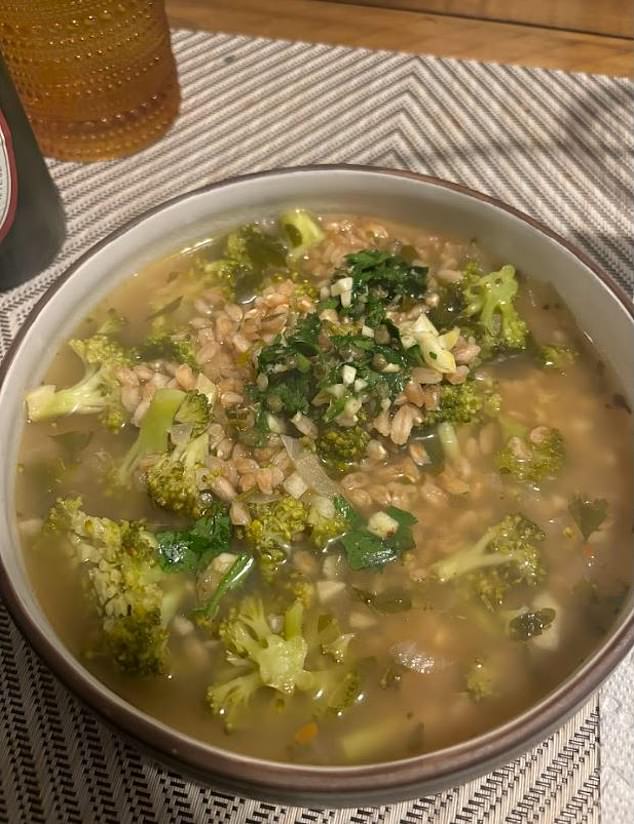I like to think I’m in good shape; not great, but decent.
I walk almost an hour every day during my lunch break, commute twice a day and go to the gym regularly.
I cook a balanced diet of protein, grains and vegetables most nights, I meal prep and try to limit alcohol.
It’s not perfect, but overall it works well, or at least that’s what I thought.
A few weeks ago, a blood test revealed that I had high LDL (bad) cholesterol, high fats called triglycerides, and high glucose.
The combination of all these factors could cause fat to build up in my arteries and increase my blood sugar level, which could lead to diabetes, heart disease, and stroke, among other problems.
“Is there a history of high cholesterol in your family?” the IVDrips team that performed the test asked me.
It’s not, and it’s not something I’ve really thought about as a 28-year-old woman in good general health. Even the doctor said it was “strange” for this level to be elevated at my age.
I must admit, however, that I had become a little lazy when it came to eating and exercising.
Planning a wedding has meant I’ve spent more nights organizing seating charts and ordering takeout than I have preparing a home-cooked meal and hitting the gym.
Still, I could feel the fear creeping in knowing I was already at risk for a number of chronic diseases (I have a collection of minor health issues).
It was around this time that DailyMail.com covered a variety of new research promoting veganism as a cholesterol- and inflammation-reducing diet.
In need of fresh motivation and alarmed by my test results, it was as good a time as any to try going vegan for three weeks.

This was my go-to breakfast on the weekends: plant-based eggs with spinach and chili oil, plus Beyond sausage. I’m not a big breakfast person, but I found myself missing eggs and bacon.
The goal wasn’t to lose a lot of weight or completely change my lifestyle, but to see if a vegan diet could live up to its health halo.
My “last meal” consisted of everything I would have to give up eating: McDonald’s chicken nuggets, French fries (which, for some reason, are cooked in beef fat), and a vanilla milkshake.
As I continued to eat entirely plant-based foods, I began to regret not going vegetarian or doing something less restrictive.
When it came to “replacements” like fake meat and cheese, I noticed changes in texture and flavor right away.
One night for dinner I swapped out regular cheeseburgers for Beyond Burgers with Violife Dairy-Free Cheese.
The cheese, if you call it that, was like biting into a piece of rubber that had a vague cheddar smell when you put it in your mouth.
But it lacked real flavor.
The opposite was true of Beyond Meat, which tasted like it had been over-seasoned to hide the fact that it’s not beef.
It also had a slightly pungent smell, almost reminiscent of my cats’ food.
Meanwhile, I had to watch my fiancé’s classic American cheeseburger frying in a separate pan. My mouth was almost watering as I watched the cheese melt.
The cheese on mine never quite melted, and it was nearly impossible to get the burger nice and charred without burning it completely.

My fiancé’s regular beef burger with cheddar on the left, and my Beyond burger with Violife “cheese” on the right (plus Hidden’s Valley’s plant-based ranch dressing)

It may be the saddest-looking hot dog in existence, however, this meat substitute tasted more like the real thing, possibly because hot dogs are an amalgamation of “mystery meat” anyway.
The only meat substitute that could pass for authentic was a hot dog from my favorite bar.
For $2 more, you could enjoy a nice spring day outdoors with a hot dog and beer combo.
The appearance left something to be desired, the dog seemed paler and drier than most I had tried, but at least for a moment, I forgot how much I missed real meat.
It doesn’t help that some recent research suggests that eating vegan meat is linked to up to a 15 percent higher risk of heart attacks and strokes, as well as premature death.
But I found I was less miserable when I stopped trying to replace animal products with imitations.
One of the most enjoyable meals I had was a chickpea and spinach curry with coconut milk and spiced lentils over rice that I made two weeks into my trip.
But I also came across a fair number of restaurants that had virtually no vegan options, which surprised me since I live in New York.
At one event, I was only able to eat one thing on the menu: pita bread and hummus. I had to prepare a whole separate dinner when I got home.
And since I was away for a birthday, I had to improvise a lunch consisting of couscous and a side of broccoli.
On my last night of veganism, a friend took it upon herself to prepare my ‘last meal’: BRoccoli farro stew with capers and parsley.
This was by far the best meal I had in three weeks.
After almost a month of dreaming about real cheese and a big, greasy burger, I finally reached the end of the experiment.
Even after a relatively short period of time, changes were noticeable in my body. My LDL cholesterol dropped by seven percent, still borderline high, but within the normal range for someone my age.
My triglycerides (fats that circulate in the blood and come from foods such as butter and oils) dropped by 15 percent, returning to a healthy level. And my glucose dropped by six percent, although it remained within the normal range.

Although this restaurant has a wide variety of vegetarian meals, there were very few vegan options, so I settled for something green and more green.

The last (and best) meal of my experiment: Broccoli and farro soup with capers and parsley
I was honestly shocked to see a reduction in cholesterol after just a few weeks of veganism without taking any medication.
Research in the journal Nutrition ReviewsHowever, they did show that dietary changes, such as adding fiber and reducing fat, could lower cholesterol in about four weeks.
However, drugs like statins remain a tried-and-true method for lowering cholesterol. According to Yale Medicine, these inexpensive drugs taken by nearly 50 million Americans can reduce levels by 30 to 50 percent. And some drugs like Crestor claim to lower levels in as little as two weeks.
While diet has been shown to improve cholesterol, many people also need medication.
My vitamin D level, which was low, also increased slightly, although I was still deficient and was told I “needed to take supplements” daily.
However, some levels worsened after eliminating animal products.
My iron level dropped more than 30 percent, putting me below the normal range.
Iron is rich in several animal products that I had eliminated from my diet, including eggs, chicken, beef, turkey, salmon, and eggs, which could explain why my levels dropped.
While I’m grateful to have my cholesterol back within a normal range, I know it’s something I’ll have to monitor more closely to make sure it doesn’t go up again.
However, I am much more likely to do so if I incorporate more plant-based proteins, such as legumes, into my diet and cut back on fast food, as well as doing some more exercise.
I missed cheese too much to ever give it up again.

